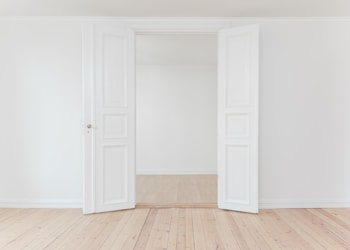Do you struggle to fall asleep? Does it seem like centuries before you can finally drift to sleep? This is a common occurrence/condition with many people today. Although there are days you won’t struggle with sleep, many are those that you lay on your bed for hours before getting a shut-eye. Although your lifestyle might be to blame for this, making a few changes can see you have a restful night and sleep every day. Here are a few tips and ideas to help you sleep faster and improve your sleep patterns.
- Keep the bedroom cool enough (not too cold or hot)
Sleep experts recommend setting the temperature to between 66 – 70 degrees. This is the optimal temperature for promoting sleep.
- Have light/comfortable clothing on
You don’t want to get too hot while in bed. Very light but comfortable clothing is thus recommended if you are to have a restful night.
- Avoid caffeine hours before bedtime
Having your regular cup of coffee, or any other caffeinated beverage, a few hours before bedtime will only make it almost impossible to slide to sleep. Limit your caffeine intake to the morning hours and nothing later than 1 p.m. Doing so increases the chances of the body producing enough sleep hormones.
- Get exercising
Exercising your muscles (especially in the morning hours) allows for blood to reach all the parts of the body and also helps reset the circadian rhythm. Staying active also enables the body to produce enough sleep hormones, allowing you to drift to sleep quickly and easily.
- Limit your screen time
Are you always on your phone or work on your computer for long hours? If you do, then the blue light produced by these digital screens could be the reason you can’t sleep well. Consider limiting your screen time, and turn off all digital screens several hours to bedtime to avoid this.
- Read something before bed
Reading a magazine, book, or physical paper helps the mind relax. Avoid reading anything on digital screens, as these might only increase your stress levels.
- Write down anything that might be stressing you
As cliché as it may sound, never take your stresses to bed. Instead, write them down before setting foot on your bed. Be sure to look for ways to manage stress, or even better, talk to a friend about it. Do not let stress eat up your precious sleep time.
- Avoid alcohol
Alcohol should be the last thing in your mind a few hours before bedtime. Drinking even a cap of alcohol or wine might trigger wakefulness or cause you to make repeated trips to the bathroom. Drink water if you have to to stay hydrated.
- Invest in a white noise machine
Are noises outside, or a snoring partner, keeping you from sliding to sleep? A white noise machine may help mask all these noises and distractions, allowing you to sleep faster.
- Dim the lights
Consider dimming lights in the bedroom, or even the living room, an hour or so to bedtime. The low light intensity will trigger increased production of melatonin, the sleep hormone.
- Keep the bedroom as dark and comfortable as possible
In addition to blocking noises and other distractions, you want to keep your bedroom as dark as possible while you sleep. A dark room allows the body to produce more melatonin – promoting sleep. Blackout curtains or drapes may come in handy in this. Your bed should be comfortable and supportive, read these Stearns and Foster mattress reviews to find the perfect mattress for a great night’s sleep.
















